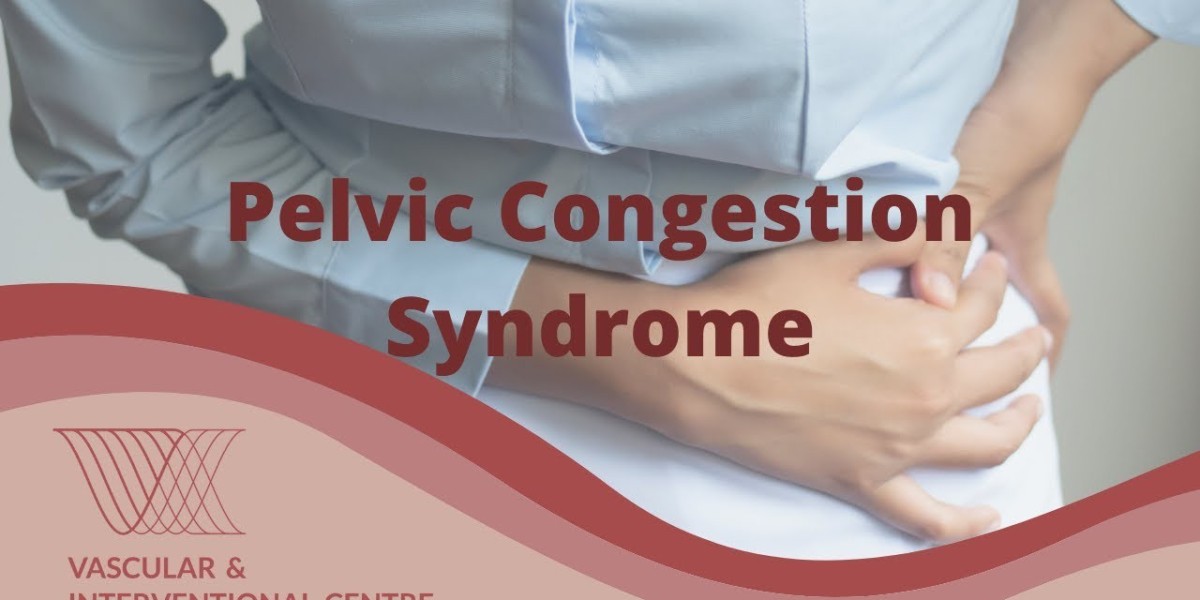Pelvic Congestion Syndrome (PCS) is a vascular condition that affects women, often during their childbearing years. It occurs when veins in the pelvic region become enlarged and fail to circulate blood effectively, leading to chronic pelvic pain. For women in Albuquerque, awareness of this condition is important because symptoms may be mistaken for other gynecological or gastrointestinal issues. Understanding pelvic congestion syndrome, its causes, and management strategies can help patients seek appropriate care and improve daily life.
Understanding Pelvic Congestion Syndrome
PCS develops when pelvic veins weaken and blood begins to pool, similar to varicose veins in the legs. This pooling increases pressure and leads to discomfort, especially after long periods of standing or during menstruation. Women experiencing pelvic pain for six months or longer may be at risk of having this condition.
For patients considering evaluation of pelvic congestion syndrome Albuquerque specialists often begin with a detailed medical history and imaging tests such as ultrasound, MRI, or venography to confirm diagnosis. Because PCS can mimic other health concerns, accurate diagnosis is a crucial first step.
Common Symptoms to Recognize
Pelvic Congestion Syndrome has a range of symptoms that can interfere with daily activities. The most common include a dull, aching pain in the lower abdomen or pelvis that often worsens at the end of the day, pain that increases after standing for long periods, and discomfort during or after sexual intercourse. Some women may also notice visible varicose veins in the thighs, buttocks, or vulva, along with a feeling of heaviness or pressure in the pelvic area. Women in Albuquerque who consistently experience these symptoms may benefit from consulting a vascular specialist for further evaluation.
Diagnosis in Albuquerque
Identifying PCS requires careful testing, since its symptoms overlap with other conditions like endometriosis or ovarian cysts. In Albuquerque, physicians may use imaging tools to check for enlarged pelvic veins. Non-invasive ultrasound is often the first step, followed by more detailed scans such as CT or MRI when necessary. In some cases, a venogram—a specialized X-ray that uses contrast dye—provides the clearest picture of blood flow and vein function.
Early diagnosis can help women avoid unnecessary treatments for unrelated conditions and focus on therapies that address PCS directly.
Treatment Options for Pelvic Congestion Syndrome
Treatment varies depending on symptom severity and patient needs. Options include:
Lifestyle adjustments: Regular exercise, avoiding prolonged standing, and wearing compression garments can relieve mild symptoms.
Medications: Hormonal therapy or pain management medications may help regulate symptoms.
Minimally invasive procedures: One of the most common approaches is embolization, where a specialist blocks the problematic veins to stop pooling and improve circulation.
Surgical options: In rare cases, surgery may be recommended if less invasive methods are not effective.
Specialists treating pelvic congestion syndrome Albuquerque often create individualized treatment plans, combining lifestyle strategies with medical care to support long-term relief.
Lifestyle Management and Self-Care
Beyond medical treatments, daily habits play an important role in managing PCS, and patients can improve their quality of life with small but meaningful changes. Staying active through low-impact exercises such as walking, yoga, or swimming helps promote circulation, while maintaining a balanced diet supports overall vein health. Using supportive garments can also provide relief, and taking short breaks throughout the day prevents the effects of prolonged sitting or standing. In Albuquerque, many wellness resources, including fitness centers and yoga studios, offer safe spaces for women to incorporate these activities into their routines.
Local Support and Resources in Albuquerque
Managing PCS can be challenging without support, but Albuquerque offers medical and community resources to help patients. Vascular clinics and specialists provide diagnostic testing and minimally invasive treatment options, while support groups and online communities give women the opportunity to share experiences and coping strategies. In addition, wellness programs and fitness centers offer guided activities that encourage safe physical movement and stress relief. By connecting with healthcare professionals and supportive networks, managing pelvic congestion syndrome becomes more effective and less isolating.
Conclusion
Pelvic Congestion Syndrome is a condition that often goes unrecognized, but with proper diagnosis and management, women can find relief and improve their daily lives. For those experiencing chronic pelvic pain in Albuquerque, understanding PCS, recognizing its symptoms, and seeking specialized care are important steps toward better health. By combining medical treatments with lifestyle adjustments and local support, patients can manage the challenges of PCS and focus on long-term well-being.






